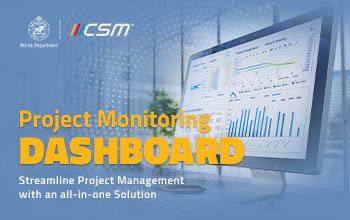In an era where digital transformation is reshaping governments worldwide, the small East African nation of Djibouti has embarked on an ambitious journey to modernize its public services through e-government initiatives. This strategic move aims to enhance efficiency, transparency, and citizen engagement in a country of approximately 1 million inhabitants (World Bank, 2022). However, the path to digital governance is fraught with challenges, particularly for developing nations.
.jpg)
The E-Government Landscape in Djibouti
Djibouti's foray into e-government is part of a broader national strategy to leverage technology for socio-economic development. The country's "Vision 2035" plan explicitly recognizes the role of digital technologies in transforming public administration and fostering economic growth (Republic of Djibouti, 2014). Key initiatives in this digital transformation include:
- National Data Center: Inaugurated in 2018, this facility serves as the backbone for the country's digital infrastructure, hosting government websites and applications (ITU, 2019).
- E-Government Portal: A centralized platform providing access to various online services and information for citizens and businesses.
- Digital ID System: An ongoing project to provide citizens with secure digital identities for accessing government services (World Bank, 2021).
- Open Data Initiative: Efforts to make government data more accessible to the public, promoting transparency and innovation.
Despite its relatively recent entry into the digital governance arena, Djibouti has made notable strides. The United Nations E-Government Development Index (EGDI) shows a steady improvement in the country's e-government performance, with its ranking rising from 179th in 2016 to 163rd in 2020 (UN DESA, 2020). Djibouti's progress in e-government can be attributed to several key factors. These include substantial investments in ICT infrastructure, such as expanded fiber-optic networks and improved mobile broadband coverage (African Development Bank, 2021); the establishment of a supportive legal framework for electronic transactions and data protection, capacity-building initiatives to enhance digital literacy among civil servants and citizens backed by international partners, and the country's strategic position as a hub for submarine cables, which has significantly boosted its regional digital connectivity. These combined efforts have laid a solid foundation for the nation's ongoing digital transformation in governance.
Despite notable advancements, Djibouti's e-government vision faces significant challenges. These include a persistent digital divide between urban and rural areas, with internet penetration at 59.3% in 2021; inadequate ICT infrastructure in remote regions; cybersecurity vulnerabilities; a shortage of skilled ICT professionals; financial constraints limiting comprehensive e-government initiatives; and cultural and organizational resistance to transitioning from traditional bureaucratic processes to digital systems. These multifaceted obstacles hinder the widespread adoption and effectiveness of digital government services across the nation.
Strategies for Overcoming Challenges
To address these obstacles and advance its digital government agenda, Djibouti could consider the following strategies:
- Inclusive Digital Access: Implement targeted programs to expand internet access in rural areas, potentially through public-private partnerships and innovative technologies like satellite internet.
- Digital Literacy Campaigns: Launch comprehensive digital literacy initiatives targeting both civil servants and citizens, with a focus on underserved populations.
- Cybersecurity Enhancement: Invest in robust cybersecurity measures, including the development of a national cybersecurity strategy and the establishment of a dedicated cybersecurity agency.
- Capacity Building: Strengthen partnerships with international organizations and academic institutions to develop local ICT talent and expertise in e-governance.
- Sustainable Financing: Explore innovative financing mechanisms, such as public-private partnerships and impact investing, to support long-term e-government initiatives.
- Change Management: Implement comprehensive change management programs within government agencies to facilitate the cultural shift towards digital governance.
- User-Centric Design: Prioritize user experience in the development of e-services, ensuring they are intuitive and accessible to all segments of the population.
Case Study: E-Tax System Implementation
.jpg)
A notable success in Djibouti's e-government journey is the implementation of an electronic tax filing system in 2019. This initiative has significantly reduced processing times and improved revenue collection efficiency. According to the Ministry of Budget, the adoption of e-filing increased tax compliance by 15% in the first year of implementation (Ministry of Budget, 2020). This case demonstrates the potential impact of well-executed digital services in improving government operations and citizen compliance.
Djibouti's pursuit of digital government services represents a crucial step towards modernizing its public administration and fostering economic development. While significant progress has been made, the country faces multifaceted challenges that require strategic interventions and sustained commitment. By addressing issues of digital inclusion, infrastructure development, cybersecurity, and human capital, Djibouti can unlock the full potential of e-governance.


























































We will verify and publish your comment soon.